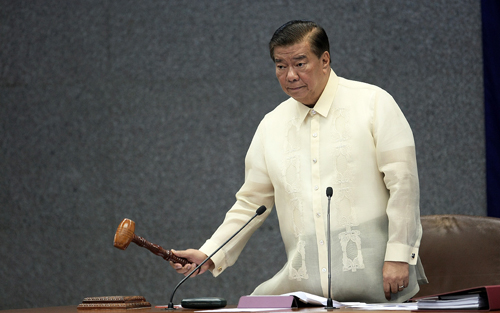 The Senate has approved on third and final reading a bill which will allow mobile users to switch between network providers without losing one’s own “digital identity.”
The Senate has approved on third and final reading a bill which will allow mobile users to switch between network providers without losing one’s own “digital identity.”
Senate Bill No. 1636, known as the Lifetime Cellphone Number Act, provides mobile users with the option of keeping their existing mobile numbers even as they switch networks or mode of subscription services (from prepaid to postpaid, and vice versa). The bill accomplishes this by prohibiting Public Telecommunications Entities (PTEs) from locking-in mobile devices to their respective network, regardless whether the device is sold as a unit or under a service contract.
“Advancing genuine consumer welfare starts by recognizing the right of every user to choose what is best for them. This is the essence of the Lifetime Cellphone Number Act – to have the freedom to avail of the services you want, and in return foster a spirit of market competition among telecommunication companies,” said Senator Sherwin Gatchalian, the principal sponsor and primary author of SBN 1636.
Additionally, SBN 1636 also removes the interconnection charges being imposed by network companies for calls and text messages sent to numbers registered under competing networks.
At present, users are charged with P2.50 per minute for calls and P0.15 for text messages to different networks. In 2016, these interconnection fees generated a total revenue of P3.2-billion for one telco giant.
“These interconnection fees put an unnecessary burden on mobile subscribers who have contacts that patronize different networks. Removing these fees will result in consumer savings since they will no longer be made to pay a premium for making inter-network calls and texts,” Gatchalian explained.
To ensure strict compliance with the pro-consumer provisions of the measure, SBN 1636 imposes strict penalties on PTEs for non-compliance. For the first offense, telecommunication companies shall be charged a fine between P100,000 to P300,000; for the second office, the fine will be from P400,000 up to P600,000. Subsequent offenses shall have a penalty of not less than P700,000 and up to P1-million, and shall result in the revocation of the telco company’s franchise.
Breaking the telecommunications duopoly
Senate President Aquilino “Koko” Pimentel III on Tuesday welcomed the Senate’s unanimous approval of Senate Bill No. 1636 or the “Lifetime Cellphone Number Act,” saying the measure complements the Duterte Administration’s efforts to introduce a third player in the country to break the telecommunications duopoly “that has limited the options of Filipino consumers who are dissatisfied with the current state of telco services.”
“Competition is really the driver that will force these telco companies to improve their services. Absent this, they really have no motivation to address persistent issues like slow data speeds, dropped calls, and missing prepaid loads,” explained Pimentel.
SB 1636 require telcos to provide consumers with “mobile number portability (MNP),” the option to retain one’s existing mobile number even if a subscriber moves from one telco provider to another, or when one changes the nature of one’s subscription from prepaid to postpaid, or vice-versa.
According to the Senate chief, “the passage and operationalization of this measure, together with the long-overdue introduction of a third player, will pave the way for real competition and will ensure that where telecoms services are concerned, the Filipino consumer is king.”
The measure penalizes telcos with fines of up to one million pesos should they delay, withhold, refuse or otherwise not deliver the benefits of mobile number portability to a mobile subscriber 24 hours from the time a subscriber completes his or her porting application.
The bill would also mandate the elimination of “interconnectivity” fees imposed by telecommunications entities on subscribers for calls and messages across different networks.
The senator from Mindanao said that President Rodrigo Duterte’s repeated insistence on the introduction of a third telco player “reflects the President’s concern for long-suffering telco subscribers, as well as a keen understanding of the steps necessary to address their problems.”
The President has said that a third player should be operational in the country by this year. The Department of Information and Communications Technology (DICT) has set the bidding for a new telco player for May 2018.
The DICT estimates that a new player could spend anywhere from 150 billion to 300 billion pesos in its first five years of operations. Among groups that have shown interest are companies such as Now Corp., Philippine Telegraph & Telephone Corp., Converge ICT Solutions Inc. and G. Telecoms.
DICT officials have said that telco companies from China, Japan, Taiwan and South Korea have also showed interest. However, they would be required to partner with local groups given the 40% foreign ownership limit set by the Constitution.






































































































